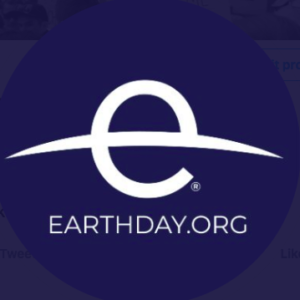Green Cities
Week in Review: Environmental News for Sept. 15-22
September 22, 2018
California has become the first U.S. state to pass a state-wide law restricting plastic straws use in restaurants. (Patrick McGreevy, Los Angeles Times)If you live along the coast, chances are that rising seas will begin to reshape your community to one degree or another in the coming decades. Use our interactive map to explore the risk of sea level rise by congressional district. #ActOnClimate https://t.co/T2pIgS2RrA
— Union of Concerned Scientists (@UCSUSA) September 21, 2018
“Plastic has helped advance innovation in our society, but our infatuation with single-use convenience has led to disastrous consequences,” [Governor Jerry] Brown wrote in a signing message. The governor said plastic in the oceans is estimated to kill millions of marine animals each year, and he noted that when a dead pilot whale washed up on a beach in Thailand recently, 80 plastic bags were found in its stomach that prevented the digestion of food… More…“On the Attack Against Climate Change” — 10 examples of local actions across the globe. (Alina Tugend, New York Times) “The Unequal Burden of Climate Change” (Emily Atkin, New Republic) A new study reveals that microplastic pollution in our seas is being spread further by insects. (Damian Carrington, The Guardian)
Microplastic can escape from polluted waters via flying insects, new research has revealed, contaminating new environments and threatening birds and other creatures that eat the insects. More…Mayors from the C40 climate group pledged to ensure that all new buildings are made net-zero carbon by 2030 in 19 cities, and that the remaining, older buildings are made net-zero by 2050. (Alissa Walker, Curbed)
Mayors from the C40 group, a coalition of hundreds of cities working together on coordinated climate action, have entered into similar pledges around creating fossil-fuel-free streets and using zero-emission buses. The pledges have become even more urgent for American cities after the U.S. pulled out of the Paris climate accord…. More…In the wake of Hurricane Florence, there’s growing concern about toxic waste. (Chris Megerian, Los Angeles Times)
Hog farms are one of the most problematic environmental challenges after Florence dumped a historic amount of rain on the region, but they’re far from the only one. Advocates have been keeping a close eye on coal ash basins, where the residue from power plants is stored, and toxic sites across the state. Floodwaters can rise high enough to mix with contaminants and then deposit them back into rivers and wetlands that provide drinking water and natural habitats…. More…“Humans Are Making Hurricanes Worse. Here’s How.” (John Schwartz, New York Times)
Kim Cobb, a climate scientist at the Georgia Institute of Technology, said that people tended to think of climate change as an abstract problem with only technocratic solutions. But it is getting more concrete all the time, and requires real-life action in response. “This year has shown us that climate change is a present-day threat to the safety and livelihoods of communities across America,” she said. “Some communities are tackling these issues head on, but some have their heads in the sand.” …More…
Reminder that nature is amazing: Watch scientists delight over rare footage of a freakishly cute eel, via @washingtonpost https://t.co/9NtUIKD1j6
— Earth Day Network (@EarthDayNetwork) September 21, 2018
The legible label of a cigarette inside a jellyfish is a painful reminder that marine animals are navigating a minefield of plastic https://t.co/4N4Ih7hF1T
— National Geographic (@NatGeo) September 21, 2018
Former Secretary of the @Interior Bruce Babbitt on why we need to save the Endangered Species Act from Trump administration attacks: https://t.co/DQC8K6kM7p
— Yale Environment 360 (@YaleE360) September 20, 2018
World Cleanup Day 2018 has come to a successful end. People in 160 countries came out and showed their care for the environment, for the future of the planet.
— World Cleanup Day (@letsdoitworld) September 15, 2018
The world is a cleaner place. Our next challenge: Keep It Clean!
Thankful beyond words, to the whole world. pic.twitter.com/S608g1Wmqi
